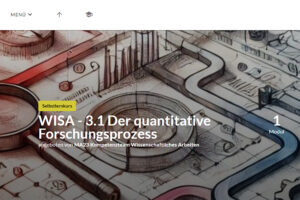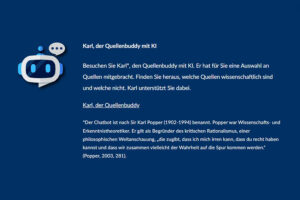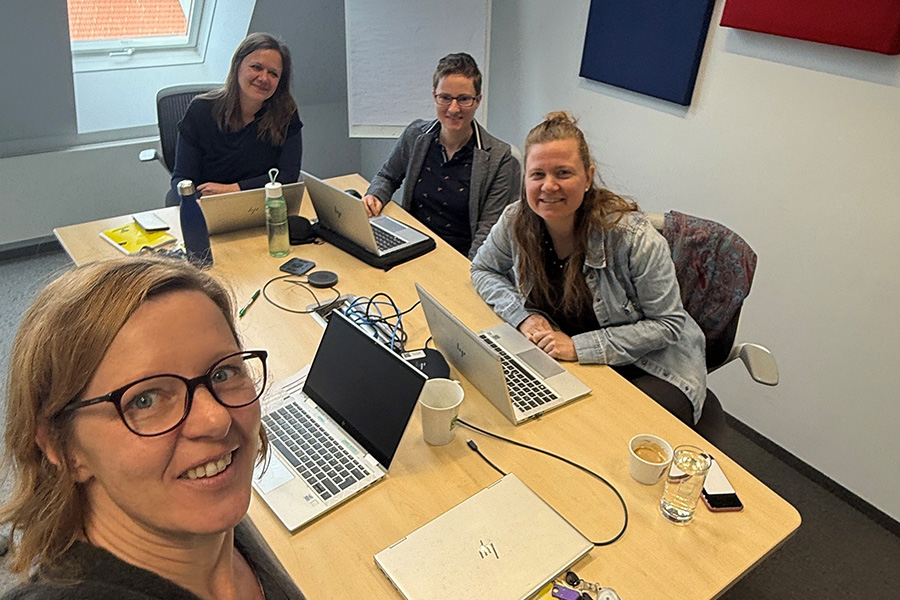The City of Vienna Competence Team “Master Propaedeutics – Bridging Courses for Scientific Work” at FHWien der WKW develops innovative self-learning courses for key scientific skills.
Stats are so hard – I’d rather just do interviews! Do I really need hypotheses? Is a textbook even a scientific source? – Scientific research can feel overwhelming for many students preparing to write their final thesis. From identifying credible sources and crafting a strong research question to choosing the right methodology, putting it all into practice can be a real challenge.
The City of Vienna Competence Team “Master Propaedeutics – Bridging Courses for Scientific Work” at FHWien der WKW is developing a new way to help students strengthen their scientific work skills. Led by Senior Researcher Ilona Pezenka, the team is creating interactive self-study courses that introduce core academic skills in a fun and engaging way.

Innovative e-learning with AI tutors
The learning modules are designed in a flexible, modular format and are available anytime for both students and faculty supervising thesis projects. They cover the fundamentals of scientific work as well as qualitative and quantitative research methods.
A key feature of the bridging courses is their engaging, easy-to-digest content, enhanced by interactive elements, gamification, and a design tailored to the needs of the target audience. One of the courses’ standout highlights is the use of AI tutors who offer personalized support – like Karl the Source Buddy, named after Sir Karl Popper, who helps distinguish between scientific and non-scientific sources, or Florence, named after Florence Nightingale, who guides users through the entire quantitative research process.

Promotion of key skills in scientific work
The project, funded by MA23, aims to playfully promote key research skills such as scientific thinking and writing, along with qualitative and quantitative methods – ultimately helping to improve the quality of final theses. The courses are designed to be used during the bachelor’s thesis process as well as for preparing students for their master’s studies and theses. The project is currently in full swing, with the first learning modules being tested in real-world settings by students and faculty. Feedback is being continuously incorporated, and the full bridging courses are scheduled for completion by the end of March 2027.
>> More information about the bridging courses

